Self Learning Material (SLM)
Self Learning Material (SLM)
Self-Learning Material plays an important role in Distance Education by bridging the gap between the distance learner and instructors. The AICTE regulations for Distance Education mandate the in-house development of SLM by the institute in a learner-friendly language. The success of Distance Education depends on the quality of Self Learning Material and keeping this vision, IMT CDL has taken a new initiative in this direction to meet the needs of our Distance Learners.
The Self-Learning Material (SLM) is developed with the approach of self-explanatory, self-contained, self-directed, self-motivating, and self-evaluating learning material. The content of the SLM is prepared in learner-friendly language embellished with real-life examples, diagrams, tables, and figures to augment the learning for a distance learner. The SLM content is divided into sections and sub-sections which are followed by self-assessment questions for effective learning. This encourages the learner to apply new knowledge and skills.
The SLM is a good read for learners as it provides the requisite knowledge to build different areas of management. Each unit also provides references and additional readings which help satisfy any inquisitiveness of learners. The SLM provides varied dimensions to the learners to enrich their understanding of subject matter comprehensively and successfully attain competency.
Instructional designers incorporate important features of didactic (teaching/instructional) conversation while preparing the instructional material e.g.
- Easily accessible presentations,
- Clear colloquial language,
- Explicit advice and suggestions,
- Personal style including the use of first-person pronouns,
- Suggestions for activities to rivet learner attention on SLM, and so on.
List of Self Learning Material's (SLM's)
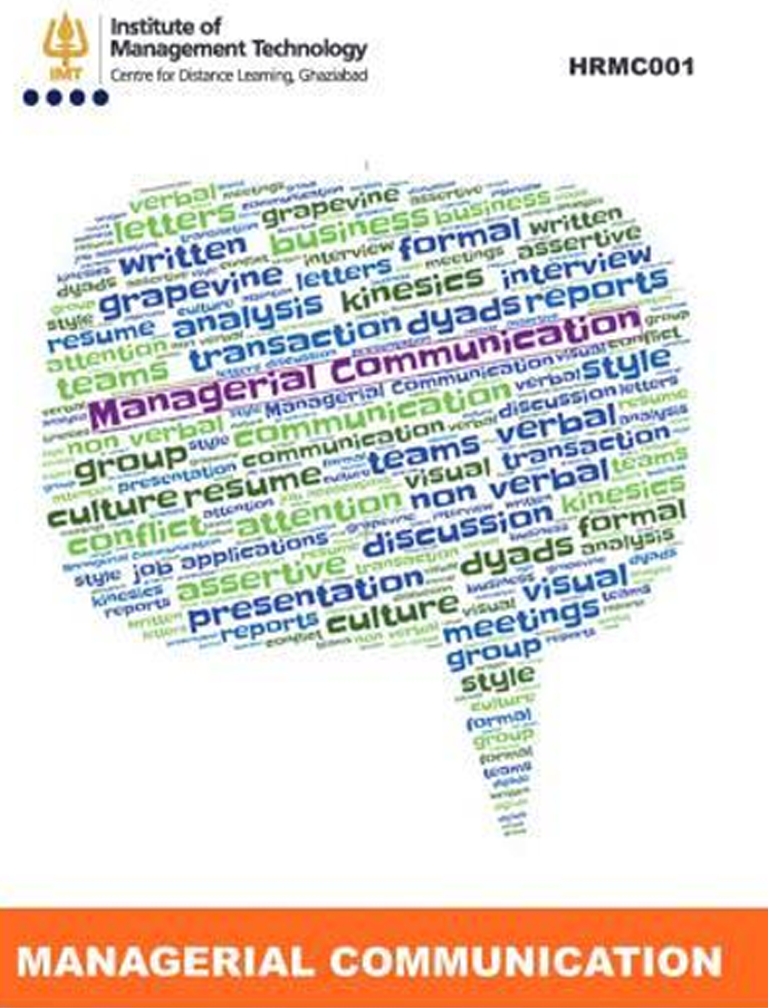
Managerial Communication
The SLM for Managerial Communication facilitates the learners to recognize and apply skills of listening and speaking, as well as differentiate the nonverbal communication in real business. The SLM will enable learners to organize and design formats for the internal and external correspondences and will also help them to create and develop communication-related to employment.
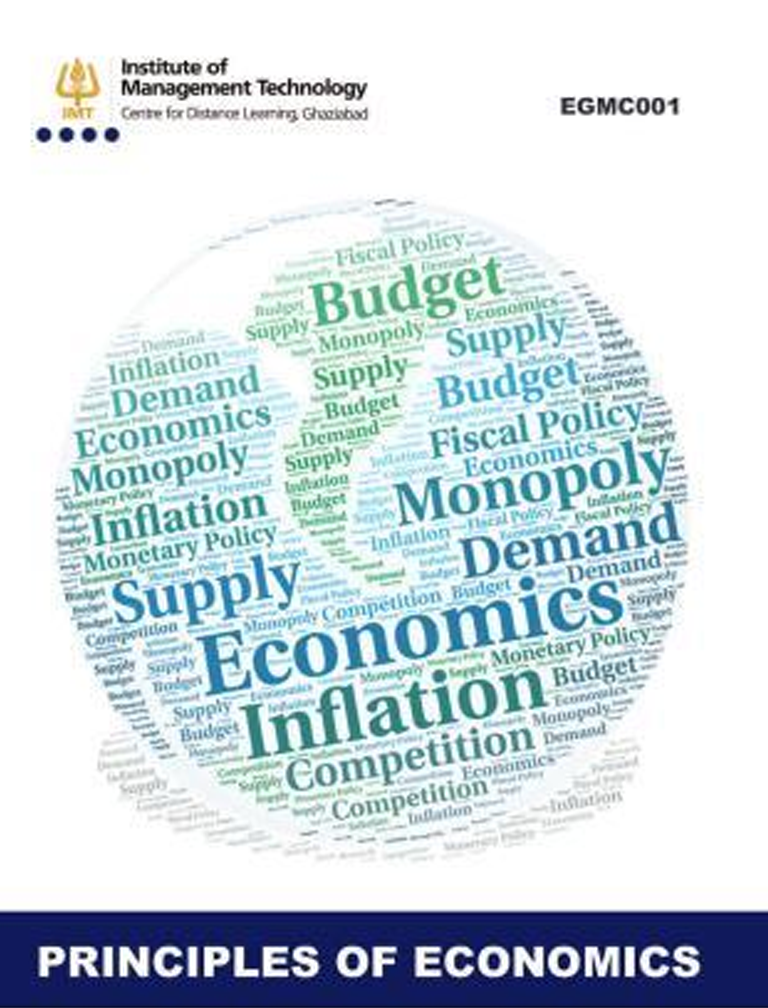
Principles of Economics
The SLM for Principles of Economics provides an introduction to micro and macro concepts of economics and their application in business decision-making. The learners will understand the broad range of economic concepts, theories, and analytical techniques to evaluate alternative strategies considering the concepts and application of economics.
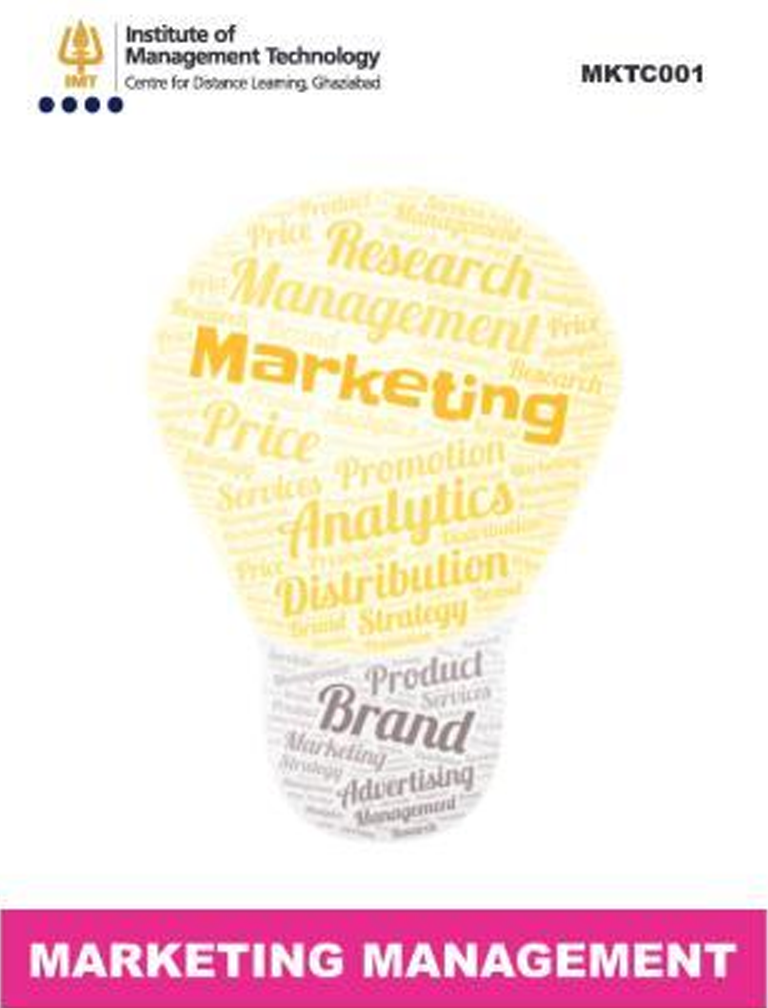
Marketing Management
The SLM for Marketing Management introduces the learner to the theory and practice of marketing. Learners will improve their ability to assess market opportunities and develop suitable marketing strategies. Furthermore, the learner will have the opportunity to implement, communicate and defend their recommendations as per the consumer needs. The learners will explore various marketing concepts through an ideal mix of pedagogical tools and self-paced learning assignments.
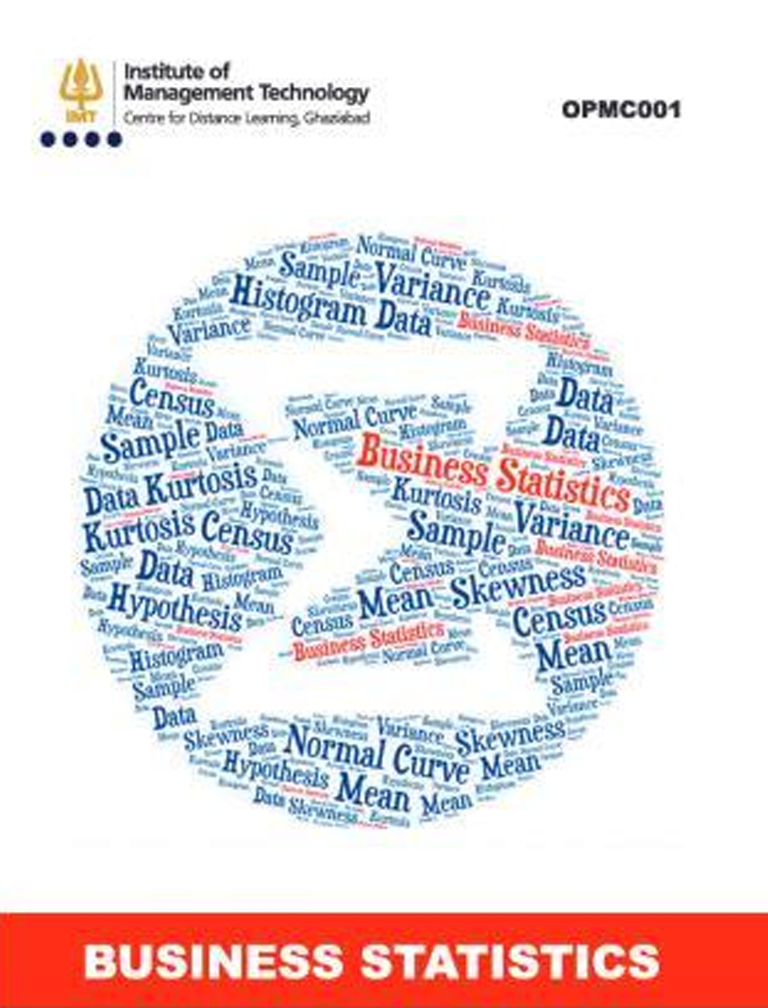
Business Statistics
The SLM for Business Statistics is an introductory content that helps the learner understand the application of statistics in solving business problems. Statistics is about how we gather, analyse, and interpret data. Using summary statistics, the course focus on learning about the organization of data with the help of statistical tools to analyse data, draw conclusions, and make predictions of the future.
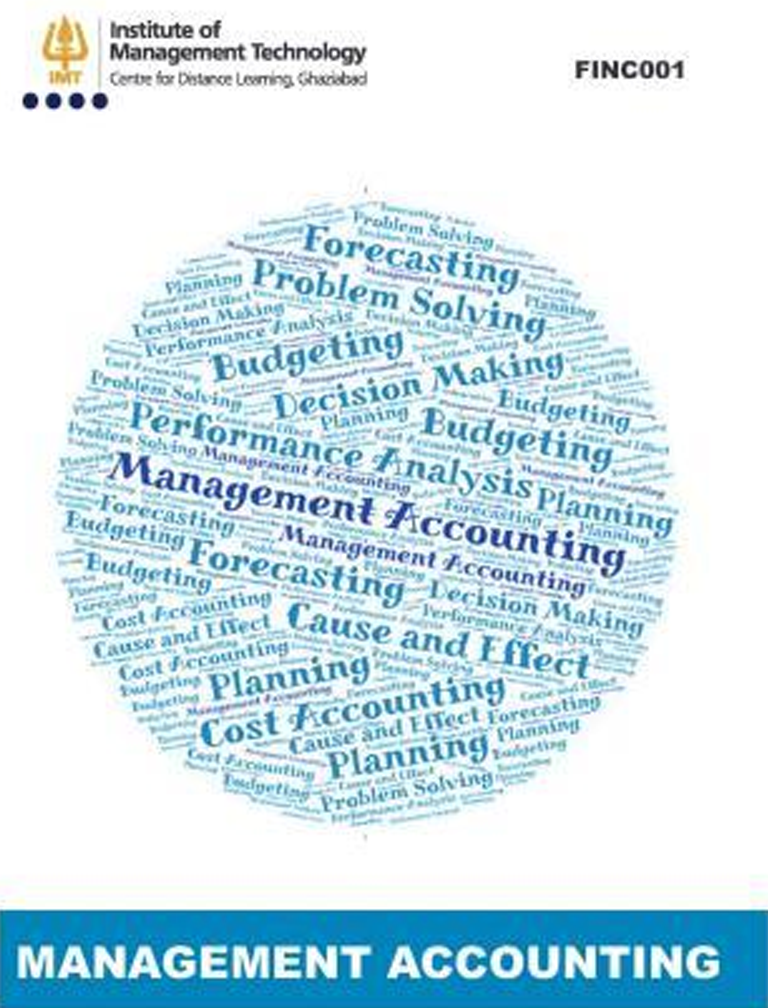
Management Accounting
The SLM for Management Accounting is designed to provide the learners a strong foundation of Finance and Accounting Area. The SLM provides Basic Cost Concepts, Elements of Cost like Material Cost, Labour Cost, Overhead Cost the Financial Reporting Framework, Explanation of Format and Terminology of Financial Statements, Analysis of Financial Statement through ratio analysis & cash flow analysis.

Financial Management
The SLM for the Financial Management introduces the learners to various finance functions, namely, Procurement of Funds, Allocation of Funds and Dividend Decisions. The course comprises of twelve units. Initial units explain the essential concepts of Time Value of Money, Risk & Return and subsequent units elaborate upon Capital Budgeting, Financial Leverage, Capital Structure and Working Capital Management. The SLM provides comprehensive knowledge of Financial Decision Making to the learners.”
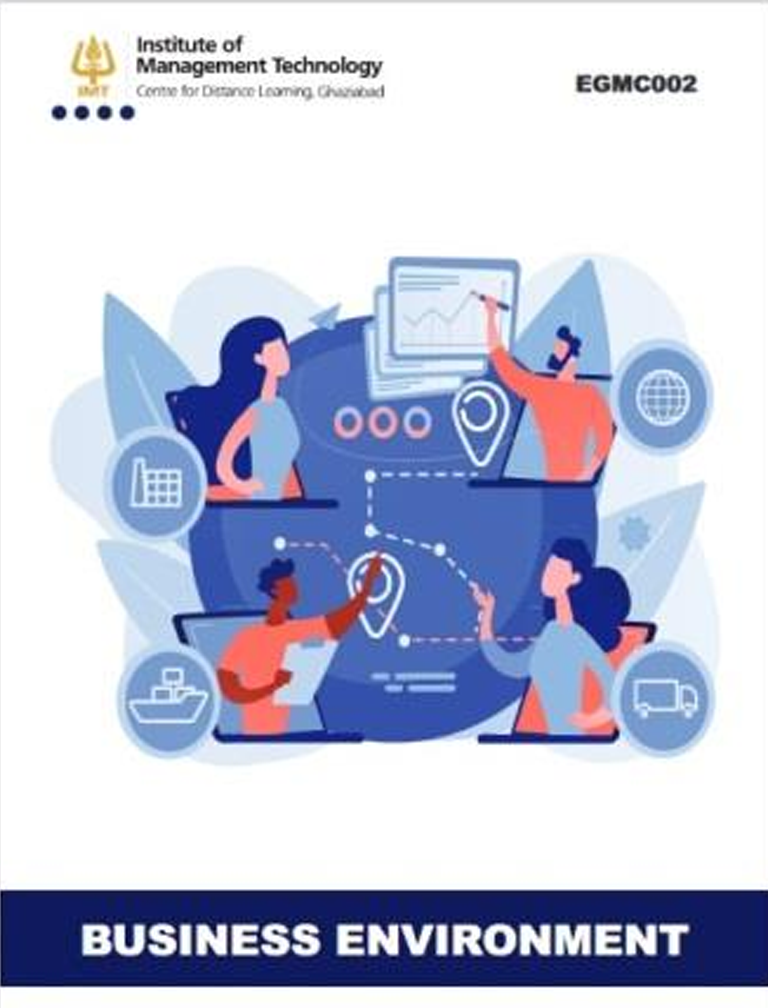
Business Environment
The SLM for Business Environment provides the details of external and general forces impacting Business Environment; their inter-relatedness; the dynamic nature of business environment; and the uncertainties and complexities of Business Environment. It apprises the learner about macroeconomic policies and economic liberalisation in India along with international business environment. The learner is made aware about the significance of sustainable development and technology in modern business.
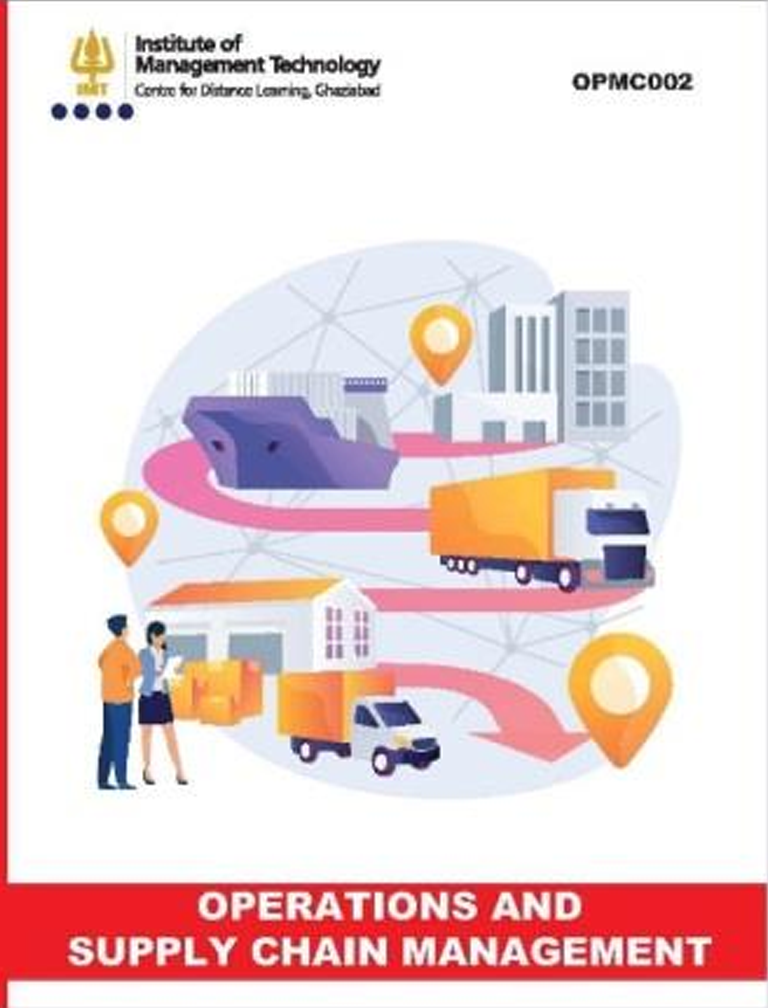
Operations and Supply Chain Management
The SLM of Operations and Supply Chain Management introduces basic concepts of operations management and supply chain management. The learners will be able to analyze various issues involved in transformation of inputs into value added outputs within and outside the organizational boundary, by understanding the product characteristics, design aspects, capacity, global perspective of supply chain activities, quality, and other relevant dimensions along with quantitative techniques.
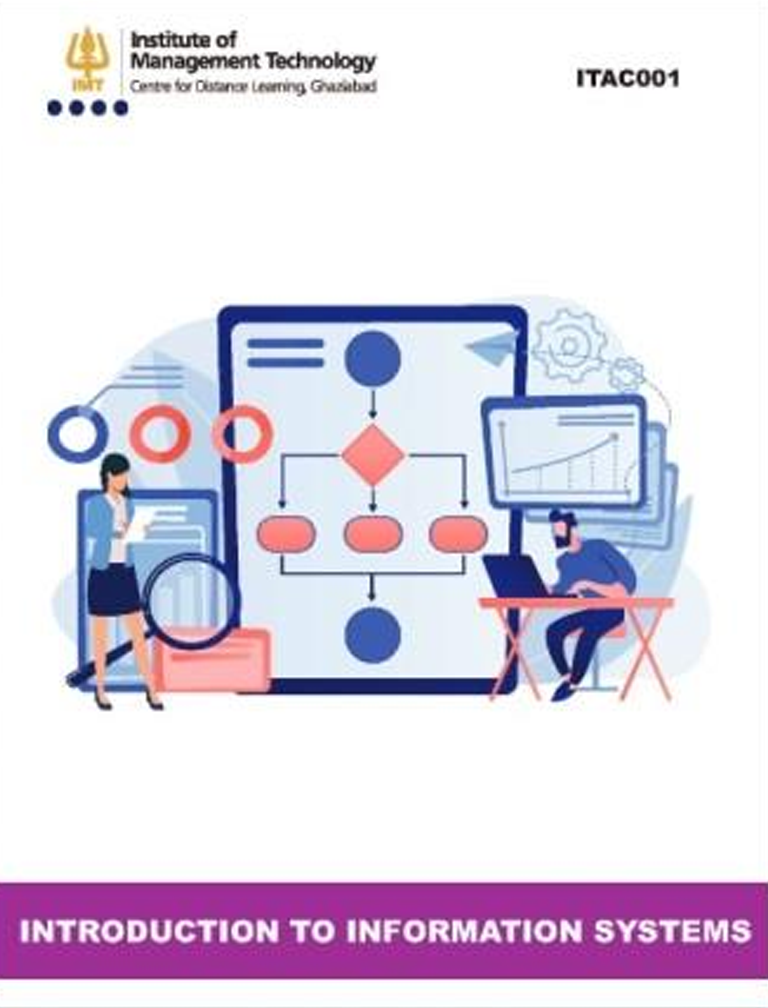
Introduction to Information System
The SLM for Introduction to Information Systems facilitates the learners to the concepts related to information systems, their use and impact on business. The course is structured in twelve units covering different aspects of hardware, software, and telecommunication networks that people build and use in organizational settings. The SLM helps in understanding the management of information technology in business and overall process of global IT applications and system development.
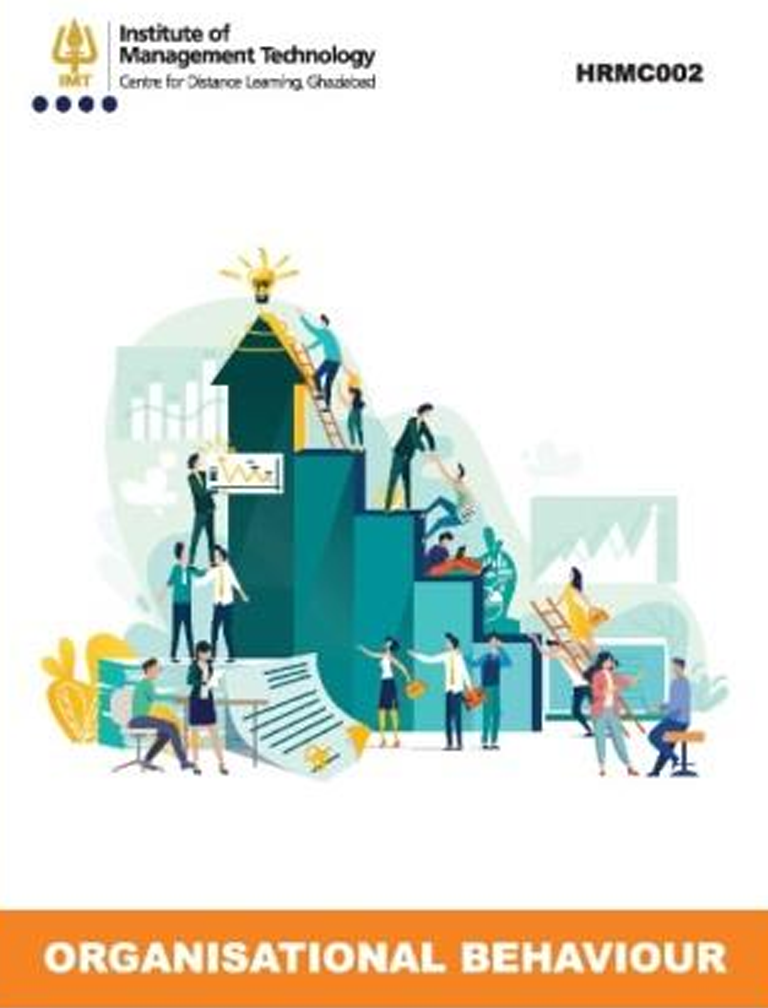
Organizational Behavior
The SLM for Organizational Behaviour makes the learners understand the need and the logic of people behaviour in a certain way and why one team is more effective than the other. The course covers the processes involved in resource optimization along with the behavioural knowledge of individual and group work within the organization which helps improving the workplace performances and effectiveness
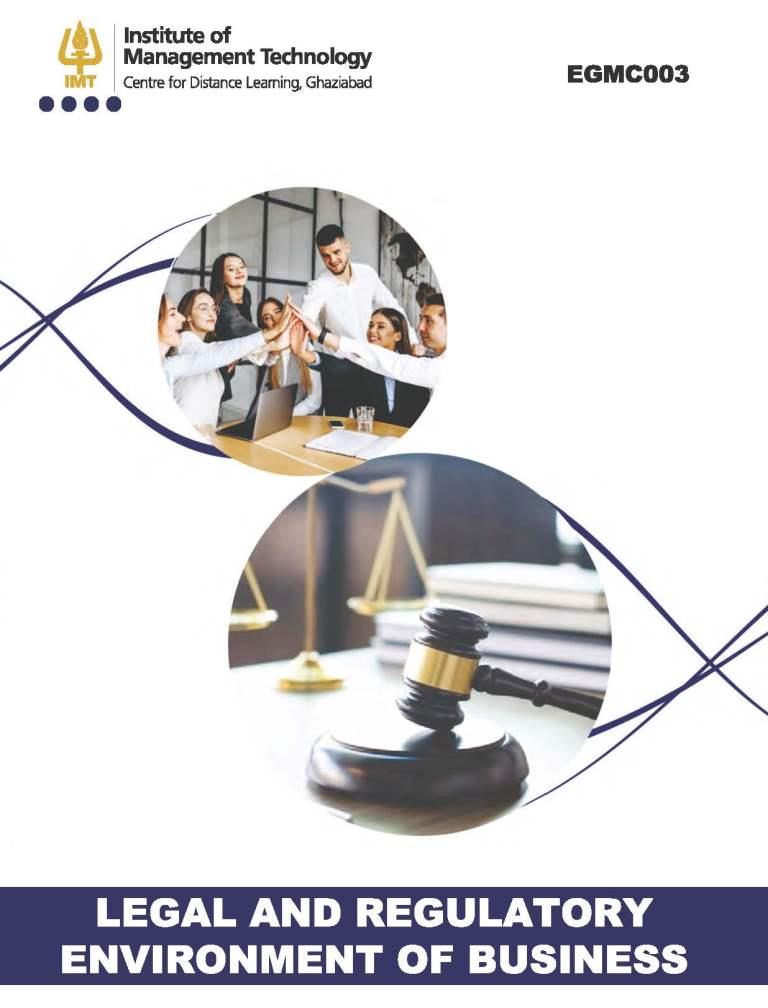
Legal and Regulatory Environment of Business
The SLM of Legal and Regulatory Environment of Business, aims to equip the learners, in an educated way, in dealing with their customers, employees, suppliers, government officials, and to their own lawyers too, in the perspective of the existing law and regulations concerning their business. The existing statutes and executive orders, regulations, or judicial decisions have been examined as they are. This Course, generally, steers clear of the “ethical issues”. It is oriented towards an empirical application of the laws and associated legal implications, if any. Following statutory provisions forming the kernel of business matters are included in this course:
- The Indian Contract Act, 1872
- The Negotiable Instruments Act, 1881
- The Sale of Goods Act, 1930
- The Companies Act, 2013
- The Consumer Protection Act, 2019
- The Competition Act, 2002
- Environmental Laws
- The Information Technology Act, 2000
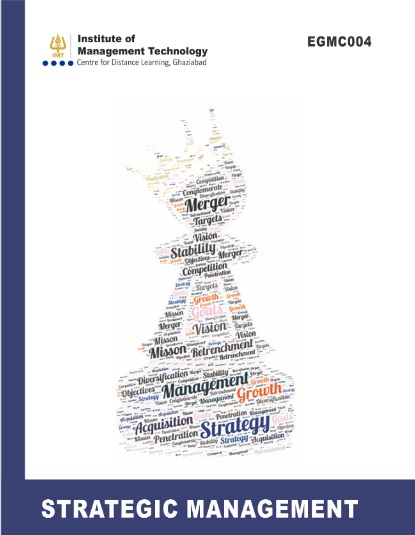
Strategic Management
The Self Learning Material (SLM) of Strategic Management offers students a unique opportunity to develop their strategic thinking skills and advance their career progression from mid to top levels of management. By emphasizing strategic thinking, SLM enables students to cultivate a holistic understanding of organizational goals, market dynamics, and competitive landscapes. Through interactive modules, industry examples and case studies, students are exposed to real-world scenarios that challenge them to think critically and make strategic decisions. SLM also provides insights into effective leadership, change management, and innovation, equipping students with the skills necessary for career advancement. By mastering strategic management concepts and their practical applications, students can demonstrate their strategic acumen to employers and position themselves as valuable assets in their organizations. Additionally, SLM keeps students updated with the latest industry trends, ensuring they stay relevant and adaptable in today’s dynamic business environment.
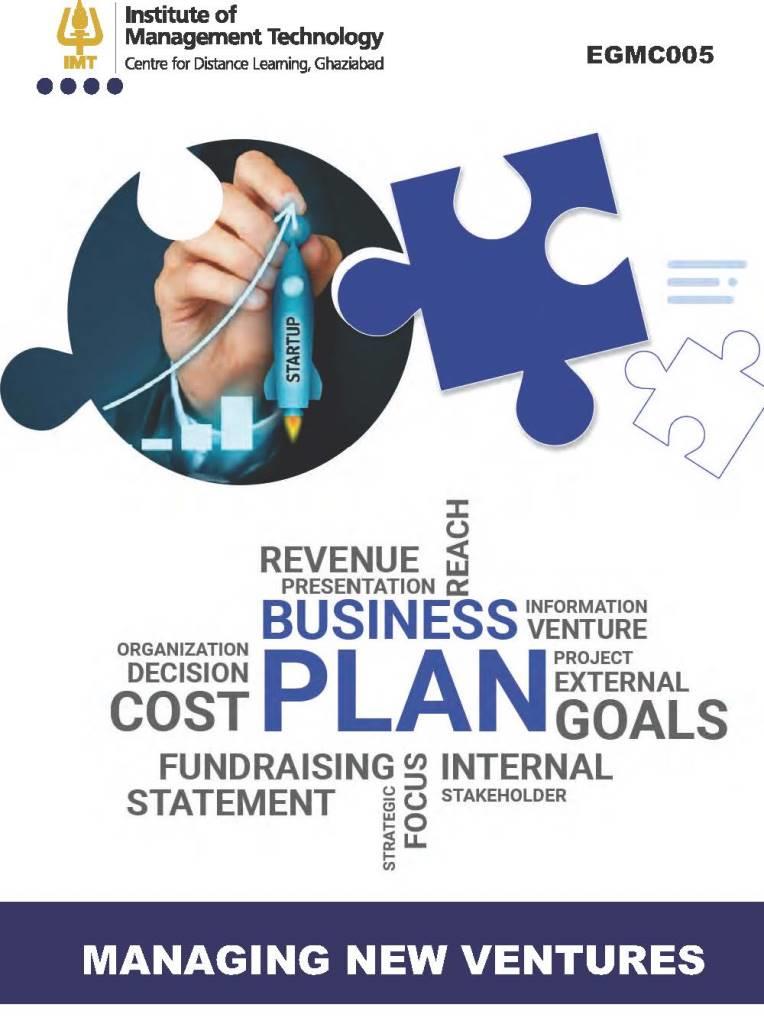
Managing New Ventures
The creation of new ventures and growing them into well-established organizations is the key purpose of the SLM of Managing New Ventures. New ventures are the source of most new jobs generated in an economy. They create new industries and markets and develop and introduce innovative products and services. The new ventures also provide new solutions to economic, social, and environmental problems. However, the current state of our knowledge does not provide a connect between the creation of new ventures and their subsequent development into well-established organizations. The SLM delves on the process of creating a new venture, organizing its structural and functional set up, and running it such that the venture eventually turns into a successfully performing set up.
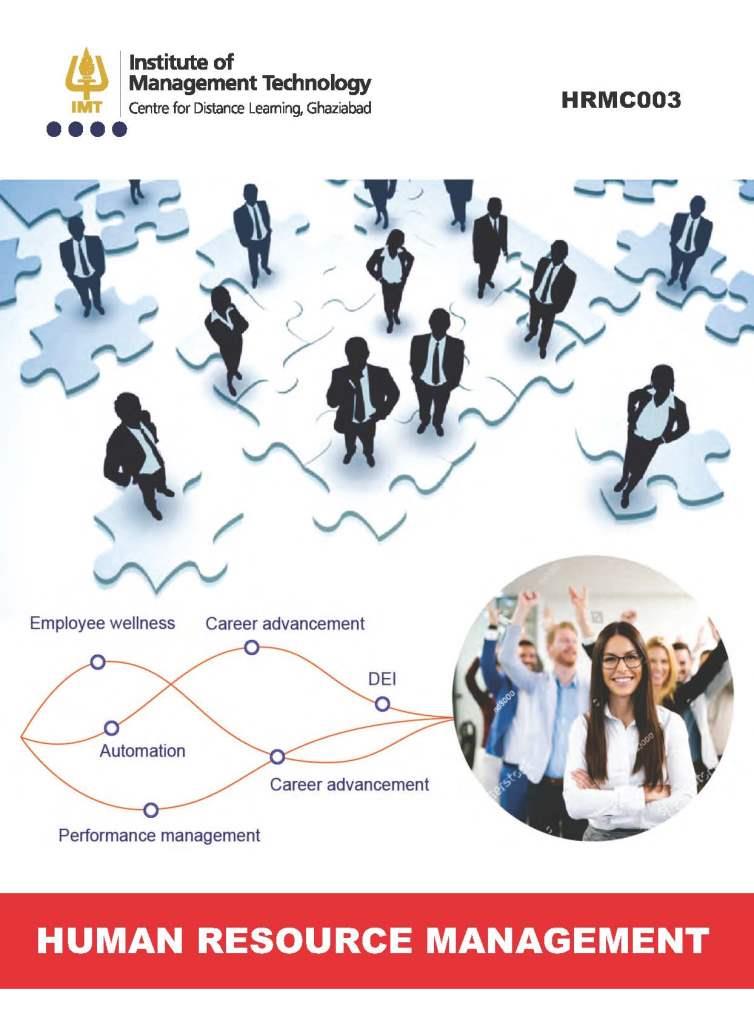
Human Resource Management
The SLM gives an in-depth understanding of the various functions of Human Resource Management from planning to exiting of the employee from an organization. It starts from tracing the evolution of the concept of HR to the recent developments in the Area. This SLM also discusses HRM in SMEs and Service sector.
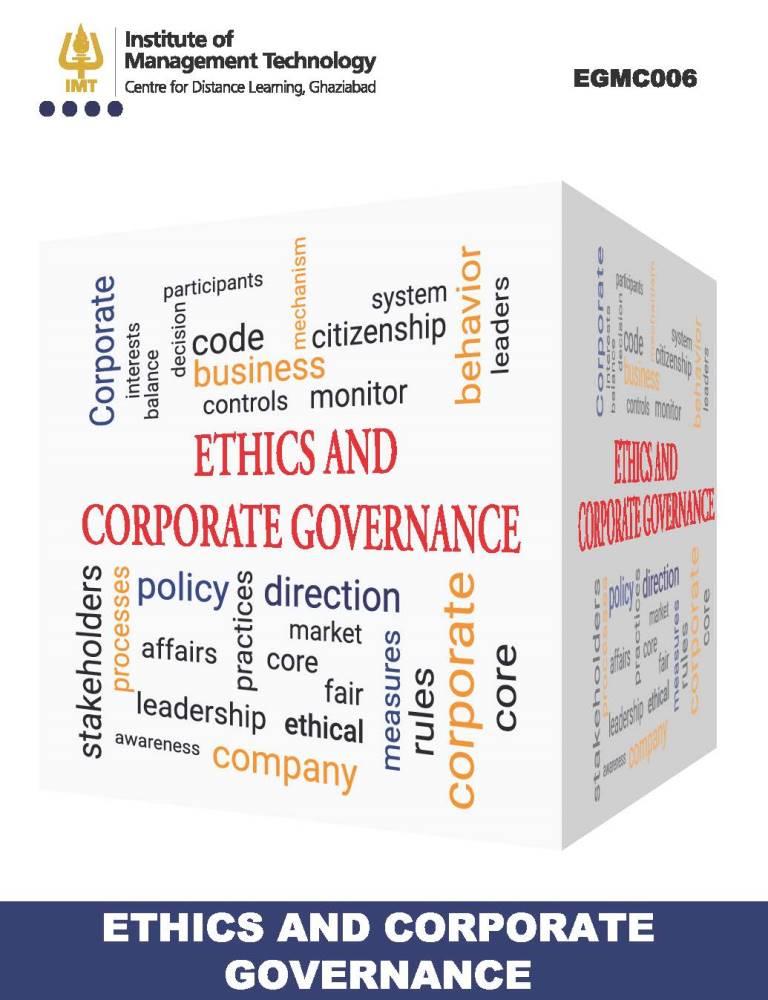
Ethics & Corporate Governance
The thrust of the SLM of Ethics & Corporate Governance is on providing the learner an understanding of the essentials of ethical principles and their application on the actual turf of corporate governance. How and in what situations are the ethical decisions implemented and what is their long-term impact on governance, has been, in brief the guiding doctrine in inclusion of the topics in the Course. The key areas included in the Course are Theories of Ethics, Ethical Dilemmas, Organizational Ethics, Ethical Audit and Corporate Social Responsibility. In addition to these, the Course also discusses some key aspects of corporate governance in India such as the role and responsibility of the Board of Directors, the Auditors, as also the interface between corporate governance and the stakeholders, and the evolution and status of E-Governance in India.
